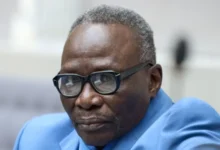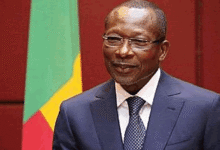Sudanese women forefront of protests after years of oppression

Mervat al-Neel was one of the many women whose protests helped bring down Sudanese autocrat Omar al-Bashir. Now she is standing up to the generals who replaced him.
After decades of oppression under Bashir’s Islamist rule, when they could be dragged before the police if a man didn’t approve of what they were wearing, women want to take charge.
That was Neel’s message to the generals who are negotiating with her and other opposition figures over the country’s political future.
When she felt belittled by one of the top army officers who took over from Bashir in a coup on April 11, Neel hit back.
“You are here in a position of power because of us,” she said, referring to the mass protests that led to the fall of the long-serving president.
She is one of two women on a 10-member negotiating committee.
“I was tough,” said Neel, who studied information technology and mathematics at Khartoum University, describing negotiations between opposition figures and the Transitional Military Council at the presidential palace.
Women, who suffered the most under Bashir’s dictatorship, are now a driving force at a sit-in outside the Defense Ministry.
Thousands still gather there every day, hoping for democracy and 50 per cent representation in any new government.
There were no women in Bashir’s Cabinet and just 25 per cent of the seats in Parliament were reserved for women.
“Women’s participation in the protests was a decisive factor in overthrowing Bashir,” said Al-Rashid Saeed, spokesperson for the Sudanese Professionals Association that organised the demonstrations.
Political activist Sara Mubarak, who campaigned for women’s rights for years under Bashir, is even more emboldened after his fall.
During protests over the cost of living last year, the 59-year-old Communist Party member hid her political leanings when she was detained and questioned by intelligence agents. Mubarak was also held briefly during the most recent unrest.
“This time I told the truth, that I was leading a protest,” said Mubarak, who had to take 10 bus rides from her hometown of Singa, located south of Khartoum, to join the sit-in.
“I am here to the end even if we have to stay until next year.”
Mubarak, who sleeps on the street under a makeshift canvas tent, is inspired by a nearby poster of Sudan’s first woman parliamentarian, former Communist Party Leader Fatima Ahmad Ibrahim, who was elected in 1965. –Reuters







